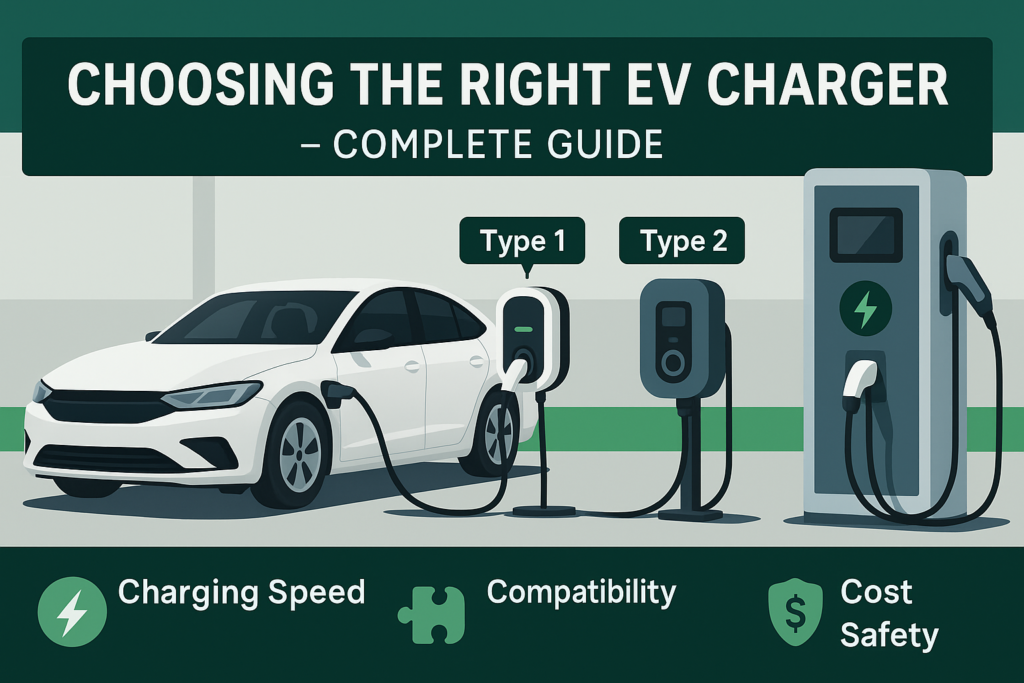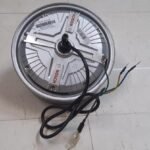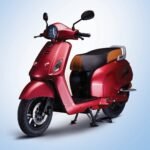
As electric scooters and bikes continue to gain traction across India, one accessory has become more critical than ever the charger. Without the right EV charger, even the best motor or battery setup can fail to deliver performance. Selecting a charger is not as simple as matching the plug. It requires understanding your battery type, voltage, ampere ratings, and safety features.
This guide will help you understand how to choose the right EV charger based on your specific electric vehicle setup.
Why Choosing the Right EV Charger Matters
An EV charger acts as a bridge between your power source and your battery. A mismatch between charger and battery can lead to:
- Slower charging
- Reduced battery life
- Overheating issues
- Permanent battery damage
If you want your electric scooter or EV bike to last longer and perform efficiently, investing in the right charger is essential.
Understanding EV Battery Types
Before you choose a charger, you need to know the type of battery your vehicle uses. The three most common types are:
1. Lead-Acid Batteries
- Common in older or budget scooters
- Require regular water topping
- Bulkier and slower to charge
- Need specific lead-acid chargers
Recommended Charger:
Lead Acid EV Chargers
2. Lithium-Ion Batteries
- Used in most modern scooters and bikes
- Lightweight and efficient
- Require precise current and voltage management
- Need lithium-ion compatible smart chargers
Recommended Charger:
Lithium EV Chargers
3. Lithium Iron Phosphate (LiFePO4)
- Safer alternative to Li-ion
- Longer lifespan
- Needs specially calibrated chargers
If you use the wrong charger for your battery type, you risk permanently damaging the cells or causing a fire hazard.
How Voltage and Current Affect Charging
Voltage Matching
Always choose a charger that matches your battery voltage. Common EV battery voltages include:
- 48V
- 60V
- 72V
For example:
- A 60V battery requires a 60V charger.
- A 72V charger on a 48V battery can cause overheating or permanent damage.
Check your battery specification before buying a charger.
Current Output (Amps)
Current determines how fast your battery charges. However, more amps are not always better. Use the charger rated for your battery’s capacity.
| Battery Voltage | Capacity (Ah) | Charger Output | Charging Time |
| 48V | 20Ah | 3A | ~6–7 hours |
| 60V | 24Ah | 5A | ~5 hours |
| 72V | 30Ah | 6A | ~4.5 hours |
Types of EV Chargers by Function
Standard Chargers
- Delivers low to medium output (3A–5A)
- Ideal for daily use
- Suitable for 48V/60V batteries
Fast Chargers
- Output of 6A–10A
- Reduces charging time by 30–50%
- Requires high-quality wiring and BMS
Shop Fast Chargers:
EV Fast Chargers
Smart Chargers
- Auto voltage detection
- Stops charging when battery is full
- Protects against overcharging, overheating, short-circuits
Recommended Product:
Smart EV Chargers
Features to Look for in a Good EV Charger
- Voltage compatibility with your battery
- Automatic cut-off when fully charged
- LED indicator for charging status
- Overload and short-circuit protection
- Compact, lightweight, and portable
- Durable body (preferably IP-rated)
Signs You May Be Using the Wrong Charger
- Battery doesn’t hold charge
- Charger gets extremely hot
- LED indicators don’t match expected cycle
- Extended charging time
- Burning smell or sparks from port
Replace your charger immediately if you notice these issues.
Browse verified EV chargers for your scooter.
How to Test a Charger Before Use
- Use a multimeter to test voltage output
- Check plug alignment with your scooter
- Ensure LED status light works as intended
- Start with 10–15 mins of charge, observe battery temperature
Safety Tips for Charging Your EV
- Always charge in a ventilated space
- Avoid using the charger immediately after a ride — let the battery cool
- Don’t use extension cords for charging
- Unplug charger after battery is full
- Never use a charger near water
Best Chargers Available on ElectricScootersParts.in
1. 48V 3A Lithium EV Charger
- Best for daily city commuters
- Smart LED indicator
- Compact & affordable
2. 60V 5A Smart EV Charger
- Ideal for delivery scooters and e-bikes
- Fast charge with BMS protection
- Lightweight and durable
3. 72V 6A Lithium Charger
- Best for performance scooters and hilly terrain
- Overcharge and surge protection
- Advanced thermal management
Related Blogs to Read
- How to Identify a Failing EV Battery
- Lithium vs Lead-Acid EV Batteries – Pros and Cons
- Affordable EV Controllers for Daily Use
- How to Upgrade Your Electric Scooter Motor Safely
Frequently Asked Questions (FAQs)
Q1. Can I use a higher amp charger for faster charging?
Yes, but only if your battery and controller support it. Otherwise, it may cause overheating or damage.
Q2. Are EV chargers universal?
No. They vary by battery voltage and connector type. Always check specifications.
Q3. How long should I charge my EV battery?
Charge time depends on battery capacity and charger output. On average, 4–7 hours.
Q4. Can I charge a lithium battery with a lead-acid charger?
No. It may damage the lithium cells. Use chargers made specifically for lithium batteries.
CTA: Ready to Power Up Your Ride?
Choosing the right EV charger ensures your scooter performs safely and efficiently for years. Don’t settle for generic options that may harm your battery.
Browse verified, high-quality chargers that suit your EV perfectly.
Shop Now:
Explore EV Chargers





